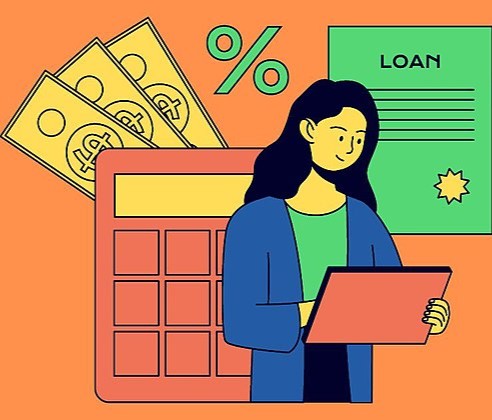Summary
This collection contains lessons that cover the Oklahoma Academic Standards for Personal Financial Literacy.Resources

What Does It Mean to Be Financially Literate?
Standard 1: Understanding Financial Literacy
- 7th - 12th
Students will create a definition of financial literacy through studying scenarios and understanding financial literacy from the context of the scenarios. The scenarios will ask students to determine if the person described is acting in a financially literate way. From this context, students will create... Read more »
What Does It Mean to Be Financially Literate?
Standard 1: Understanding Financial Literacy
- Games
- 7th - 12th
- Financial Literacy, Social Studies
- Personal Financial Literacy
- PFL.1, PFL.5

Through their own research and discussion, students will see how career choice, postsecondary education, and salary are all interrelated. Students will identify three careers that they might be interested in, identify the postsecondary requirements to attain these careers, and learn what the beginning... Read more »
How Do My Choices Affect My Future?
Standard 1: Earning an Income
- Games
- 7th - 12th
- Financial Literacy, Social Studies
- Personal Financial Literacy
- PFL.1.1
Students will identify the elements of a budget. They will examine how life events and lifestyle affect and change budgeting needs (i.e., personal expenses, emergencies, saving for future goals, family vs. individual). Read more »
Budget Basics
Standard 1: Fundamentals of Budgeting
- 7th - 12th
- Financial Literacy, Social Studies
- Personal Financial Literacy
- PFL.1, PFL.1.2

Students will create a list of personal “wants” they would like to achieve or obtain by 25 years of age. They will consider how realistic these wants are as they move through this lesson. Students then will look at household income charts in small groups and draw conclusions about how Americans primarily... Read more »
Needs vs. Wants
Standard 1: Managing an Income
- Games
- 7th - 12th
- Financial Literacy, Social Studies
- Personal Financial Literacy
- PFL.1, PFL.1.1, PFL.1.2

Students will identify public services provided through taxes. They will read and present information about local, state, and federal revenue sources that become our tax-based funding for services and programs. Read more »
Why Do We Pay Taxes?
Standard 2: Taxes
- Games
- 7th - 12th
- Financial Literacy, Social Studies
- Personal Financial Literacy
- PFL.2.1, PFL.2.2

Students will investigate financial lending sources and compare their services. Students will identify similarities and differences among the different sources through a mind-mapping strategy and evaluate which financial source offers the best opportunities for lending. Read more »
Brother, Can You Loan Me a Dime?
Standard 3: Banking and Financial Services
- Games
- 7th - 12th
- Financial Literacy, Social Studies
- Personal Financial Literacy
- PFL.3, PFL.3.1

Students will discuss and evaluate the importance of managing and reconciling a bank account. Using a scenario, students will create a fictitious bank account register. Students also will investigate various local banks' checking account policies and compare them. Finally, students will draw conclusions... Read more »
It's a Balancing Act
Standard 4: Managing a Bank Account
- 7th - 12th
- Financial Literacy, Social Studies
- Personal Financial Literacy
- PFL.4, PFL.4.1, PFL.4.2

In this lesson, students will engage in topics about saving and spending and explore investment vocabulary. They will read about different investment types and participate in an online stock market simulation game. Students will use a given scenario to create an investment portfolio. Read more »
How Will I Save for My Future?
Standard 5: Saving and Investing
- Games
- 7th - 12th
- Financial Literacy, Social Studies
- Personal Financial Literacy
- PFL.5.1

In this financial literacy lesson, students will explore the need to plan for retirement and discuss the amount of money that will be needed to retire comfortably. Students will investigate traditional ways to save for retirement, including personal savings, Social Security, mutual funds, 401K, IRAs,... Read more »
Will You Live to Be 100?
Standard 6: Planning for Retirement
- Games
- 7th - 12th
- Financial Literacy, Social Studies
- Personal Financial Literacy
- PFL.6, PFL.6.1, PFL.6.2

Acquiring the use of a car is a rite of passage for high school students. In this personal financial literacy lesson, students will investigate the cost of a car, types of lending agencies, and additional costs associated with car ownership. This lesson does require that students have access to the... Read more »
How Will I Pay for My Car?
Standard 7: Understanding Loans
- Games
- 7th - 12th
- Financial Literacy, Social Studies
- Personal Financial Literacy
- PFL.7, PFL.7.1, PFL.7.2, PFL.7.3

In this lesson, students will learn vocabulary terms that lenders use, such as collateral and credit score. Students also will understand how a credit score determines whether or how much a lender will finance a loan. It is suggested that students first complete the lesson "How Will I Pay for My Car?"... Read more »
Is 350 Good?
Standard 7: Credit History and Borrowing Money
- Games
- 7th - 12th
- Financial Literacy, Social Studies
- Personal Financial Literacy
- PFL.7, PFL.7.3, PFL.7.4

Students will learn about the FAFSA process and complete their own demo FAFSA application. Read more »
What Is FAFSA?
Standard 7: Paying for College
- 9th - 12th
- Financial Literacy, Social Studies
- Personal Financial Literacy
- PFL.7.1

In this lesson, students will discuss the pros and cons of online shopping and learn how to protect their online identities. Through a variety of scenarios, students will determine when is best to use a credit card or a debit card, as well as options for payments on credit cards. This lesson includes... Read more »
To Charge or Not to Charge?
Standard 8: Interest, Credit Cards, and Online Commerce
- Games
- 7th - 12th
- Financial Literacy, Social Studies
- Personal Financial Literacy
- PFL.8, PFL.8.1, PFL.8.2

In this lesson, students will understand the essential elements of identity theft and consumer fraud. They will create a PSA-style poster or video about how to avoid identity theft. This lesson includes optional modifications for distance learning. Resources for use in Google Classroom are included. Read more »
Don't Let This Happen to Your Grandma!
Standard 9: Identity Theft
- Games
- 7th - 12th
- Financial Literacy, Social Studies
- Personal Financial Literacy
- PFL.9, PFL.9.2, PFL.9.3

In this lesson for personal financial responsibility and career exploration, students will evaluate the costs and benefits of renting versus buying a home. They will explore the differences between a mortgage document and a lease agreement. Students will read and identify the benefits and challenges... Read more »
Rent vs. Own
Standard 10: Home Ownership and Renting
- Games, Individual Career Academic Plan (ICAP)
- 7th - 12th
- Financial Literacy, ICAP, Social Studies
- Personal Financial Literacy
- PFL.10, PFL.10.1, PFL.10.2, PFL.10.3

Students will examine different types of insurance and learn about what each type insures. They will identify appropriate amounts of insurance, learn insurance terms, and learn how insurance deductibles work. This lesson includes optional modifications for distance learning. Resources for use in Google... Read more »
Are You Covered?
Standard 11: Insurance
- Games
- 9th - 12th
- Financial Literacy, Social Studies
- Personal Financial Literacy
- PFL.11, PFL.11.1, PFL.11.2, PFL.11.3

In this lesson, students will explore the odds of winning in games of chance and discover the problems associated with gambling. They will participate in a game of dice, read personal stories, and create their own PSAs about the dangers of gambling addiction. This lesson includes optional modifications... Read more »
Are the Odds in Your Favor?
Standard 12: Gambling
- Games
- 9th - 12th
- Financial Literacy, Social Studies
- Personal Financial Literacy
- PFL.12, PFL.12.1, PFL.12.2

Students will understand the various forms of bankruptcy, how bankruptcy can occur, and alternatives to bankruptcy. This lesson includes optional modifications for distance learning. Resources for use in Google Classroom are included. Read more »
It's Not What You Think: Chapter 7 or 13?
Standard 13: Bankruptcy
- 7th - 12th
- Financial Literacy, Social Studies
- Personal Financial Literacy
- PFL.13.1, PFL.13.2

Students will identify organizations within the community that help people. Students then will discuss why people help one another and the impact of this on society. Finally, they will investigate a charitable organization, its founding, its current purpose, and its impact on society. This lesson includes... Read more »
The Power of Giving
Standard 14: Charitable Giving
- Games
- 9th - 12th
- Financial Literacy, Social Studies
- Personal Financial Literacy
- PFL.14, PFL.14.1, PFL.14.2, PFL.14.3
Standards
This work is licensed under a Creative Commons CC BY-SA 4.0 License.
Report copyright infringement »

